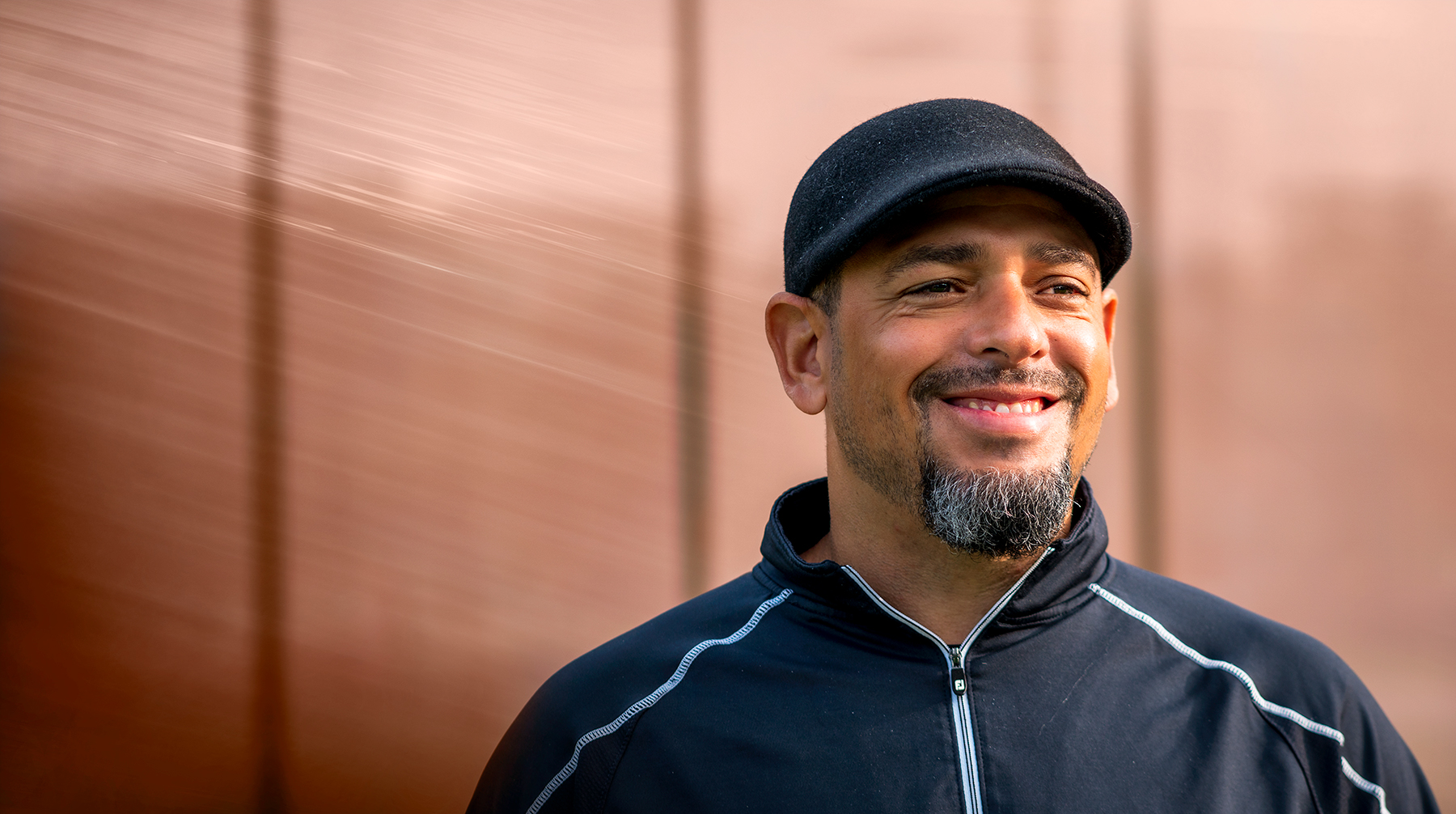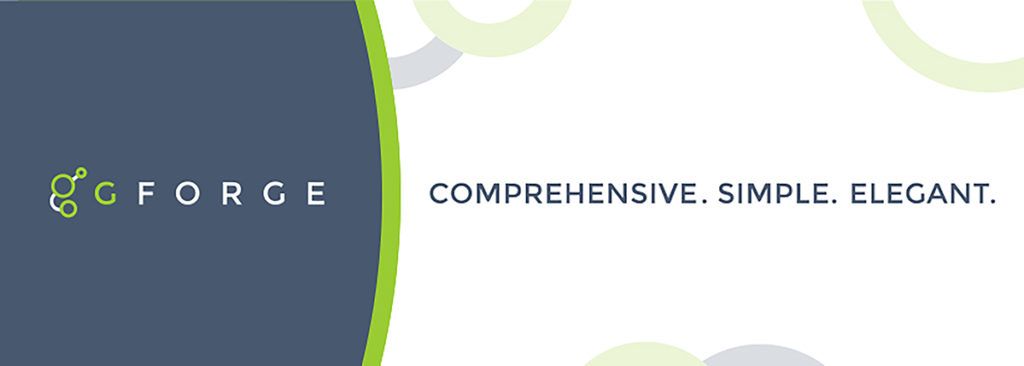
Tony Bibbs
After taking over as owner and President of The GForge Group in 2011, Tony has had to go from very technical to strategic overnight. He often jokes that he got his undergrad from UNI, his “masters” working in industry and his “Phd” through business ownership. Tony attributes his professional success to effective collaboration, the core tenet of the products and oversees and the teams he works with. Prior to joining the GForge Group, Tony worked in just about every industry including start-ups, open source software, agriculture, aerospace, finance including a long stint working in the public sector. Tony’s passion for technology is only eclipsed by his love for the outdoors where he spends time camping, fishing and hunting with his wife, three daughters and two adopted nephews.
What is your background in the Iowa tech industry?
I’m Iowa-born and-bred, from Davenport originally. I studied computer science at UNI. Studying AI and computer science, it was really important for me to have access to opportunities and teachers. I give them a lot of credit up there because it’s an understated program. They do a really good job, and honestly, that was the foundation for just about everything else we’re going to talk about today.
While I was at UNI, I found a cooperative education opportunity at Rockwell Collins, and part of what I did was work on government contracts for a handheld GPS unit — this was back before there were cell phones. It was actually pretty cool because one of the airlines retrofitted all of their airplanes to have our product on it. I was on the translation side, making sure the units worked in Arabic, English, Spanish, and other languages. Through that experience, I learned that I didn’t like writing software that talked to hardware much.
When I got out of college, I went into software consulting and did that for a number of years, first with a company and then on my own. From there, I went to work for a couple of startups. One was local, making property management software for big apartment complexes. The other was based in Montana; we made an information system to track cattle and wean weights and milk production and all those sorts of things. But there are a lot of unknowns around startups, and by that time I had a family to think about.
So I ended up working for the State of Iowa, where I ran a big chunk of the software development for the Department of Administrative Services, which is now the Office of the Chief Information Officer. That was a pretty cool job because it was my first high-profile leadership position where I was directing the technology we used, the culture we were trying to build, and the relationships we had with various parts of government.
I like to joke that I got my undergrad from UNI, my master’s from all the experience I had in the industry, and my PhD is essentially cutting my teeth on business ownership, learning on the job.
You’ve said that your love for technology will never be confined to your day job. Can you tell us a little more about that?
There was a period of time when I’d get off work, come home, and be programming and playing around with different operating systems and setting up servers in my house until two or three in the morning. I really wanted to learn different technologies, different pieces.
As a software guy, I still wanted to know how the server administration worked, how to set up a website with my own domain name, how SSL certificates work. I was doing all that on my own, and that’s what we’re looking for at GForge — people who truly love tech. You know someone’s really bought into what they’re doing for a living if it consumes them after work.

What do you do as president of GForge?
We’re a small company, so we take advantage of that. We’re very flat: there’s no pecking order, no chain of command. Everyone has direct access to me and my CTO, Michael Tutty, which means ideas are thrown around easily and we can make changes quickly.
I’m always available; I get direct emails from customers, and I think they appreciate that. I’ll sit down with someone, and if they share some feedback or a concern, like “I wish I could do X,” I’ll write a ticket right then that I put into our product roadmap that says let’s do this, it’s a really good idea. I try to make it a priority to be genuinely very receptive to customers. In my view, everybody’s a big account. Because that next great idea that might lead to better revenues can come from the smallest customer.
With your expertise in project management and IT, what’s the most significant change you’ve seen in regards to diversity and inclusion being a priority?
With everything that’s been going on this year — political turmoil, COVID-19, protests — a lot of local companies are putting things on their websites or in email campaigns talking about supporting diversity and inclusion. This is a step in the right direction, but I think it’s imperative that these kinds of messages lead to real action.
It has to start at the top. If you look at the CXOs of companies in Iowa, if you look at their boards, you don’t see diversity and inclusion at that level in most cases. There are exceptions, sure. But for the most part we could be doing better.
Then it goes to hiring, and I think companies are definitely doing a better job there. But it’s tough —you’re basically taking a population that’s not very diverse already (STEM) and then sectioning off the minorities and women within that small group. While there are active movements to try to encourage STEM students and professionals, you’re starting from a very small number so there’s a ways to go.
Once you’ve hired a diverse team of talented tech people, you have to ask, How are we going to make them feel comfortable? How are we going to make sure that their perspectives and experiences are heard? And what are the ways in which this newfound diversity will improve our corporate culture? We need to work on having these conversations about true, genuine diversity and inclusion so that they lead to a plan of action.
It has to start at the top. If you look at the CXOs of companies in Iowa, if you look at their boards, you don’t see diversity and inclusion at that level in most cases. There are exceptions, sure. But for the most part we could be doing better.
What are some tried-and-true observations that you’ve seen throughout your career that are translatable to other companies and organizations?
I’d say that no matter which industry you’re in, just about every company is a tech company. But saying that and believing it are two different things.
If you look at the org structure, particularly where the CIOs sit, they have to be the heartbeat of the organization. It’s important to figure out how to make a culture where IT is centered. After all, IT’s the thing that’s keeping business moving and customers happy — regardless of what industry you’re in.
How do you encourage innovation and idea-sharing at GForge?
We’re a small company, so we have the chance to have lots of conversations every day. The real innovation is really around your limits or constraints. You have to ask yourself, Where are your limits? We have financial limits, which translate into staffing limits, which translate into projects and initiatives that we might not take on because we’re just not positioned to do it. But there’s room for all sorts of little innovations within those constraints, and those ideas can come not only from your employees but also from your customers. And because we’re small and nimble, we can turn on a dime and implement new features and initiatives quickly.
How do you share your time and talents outside of your professional career?
I spend a lot of my time with family. We were recently thrown a serious curveball and have been fortunate to adapt. In early 2019 we adopted my wife’s nephews, and we have three teenage daughters of our own. My 18-year-old just graduated high school and is going to Iowa in the fall. It’s been kind of crazy, but I’m amazed by the resiliency of kids, how our daughters have stepped up to be big sisters and how the boys have embraced all the change.
With us being such a big family, we’re creative when it comes to how we spend our free time. I love being outdoors, camping, hunting, fishing. Some of that I do on my own, but we also spend time as a family doing those things. We’ll jump in a canoe and go float a section of a river or all go fishing together.
How have mentors influenced you and your career?
I’ve had too many mentors throughout my career to name all of them here. For me, the real value in being mentored was being able to improve my skill set. I learned how to manage office politics and all the big personalities, good and bad, that come along with working at any company. You have to be able to navigate getting stuff done alongside personalities that sometimes create friction. I also learned about the importance of different perspectives.
Another key lesson I gained through mentoring was about failure. Failing is really good, as long as you learn from it. It took me a long time to reach this realization, but today my view of failure is much more positive. I can look at a situation and go, “Okay, that didn’t work. Let’s regroup and try something else.”
It’s really important to not only maintain but also continually build your professional network. because that’s where you find your mentors (and it’s how mentees will eventually find you, too). I had no shortage of mentors early in my career; and as long as my job was primarily a technical one — software, networking, that sort of thing — it was pretty easy to find more senior leaders to learn from. But today, there are a lot of CXOs managing busy schedules that don’t really allow space for actively mentoring people. High-level executives have to make time, though, because someone invested in them back in the day and now it’s their turn to return the favor.
Mentees have to be accountable, too. You have to leverage your own professional network, even if you’re just starting out. Be aggressive and unapologetic. Soon enough, if you keep with it, you’ll get to a point where one day it’ll be your turn to pay it back.

When you bring these diverse experiences to a team that’s working together toward a common goal, that’s a rich experience. It’s really going to help the ideas flow.
What advice would you give to a young person who’s considering a career in tech or aspiring to work in tech or business leadership?
First, I’d say that you can learn a lot by using technology outside the traditional workplace. It’s really limitless, the opportunities that come up when you apply things you’ve learned in your free time to your job.
Of course, everybody brings different skills to the table; but in tech especially you’ve got to be proficient in a niche and build on it. Get really good at one thing. Have a reputation for being good at that, and then when you’ve mastered it, augment it. Add some new, related technology . Then get better at that and build it.
For me, getting involved in open-source software was an unbelievable boon. With cloud computing and software, there are opportunities for open-source contributions where you can give back to a whole community. On top of learning stuff, you get to meet people from all over the world and build a professional network while you’re doing it.
Youngsters getting into tech tend to have this stigma that they’re geeks and they can’t hold conversations. That’s not true, but you do need to work on soft skills. Join a local users’ group; talk about a technology that you’re passionate about; submit into the CFP [calls for papers] for opportunities to speak at tech conferences. Really, do anything you can that involves communication — because whether you want to stay technical or go into management or leadership, you’re going to have to be really good at the soft skills side of it.
For those who are interested in entrepreneurship, starting a business is risk —it could be the biggest success, but it could also be a failure — and you need to figure out how much risk you are willing to take on at a particular point in time. Depending on where you’re at in your life, you may have opportunities come up that seem worth pursuing. If you’re risk-averse, ask, “Is it a good risk aversion?” In other words, “Can I justify why I don’t want to take this chance?” On the flip side, if you find yourself wanting to go all-in immediately, you need to ask, “What are the potential downsides or risks involved with doing this project? What might I be forgoing to focus on this instead, and will it be worth it in the long term?” You’ll never be able to know with 100 percent certainty the outcome of a new business venture, but thinking through and questioning the risks involved is key.
Why is it important to have people of different backgrounds in technology and professional roles?
In terms of race, religion, gender, people’s paths are very different, and what they’ve learned along those paths is very different. When you bring these diverse experiences to a team that’s working together toward a common goal, that’s a rich experience. It’s really going to help the ideas flow.
How have you seen the tech industry evolve? As you look to the future, how would you like to see talent development and the workforce grow in Iowa?
One huge development is that everything’s moved to the cloud, which means that small companies like ours can serve really big customers. This wouldn’t have been possible back when you had to have your own data center and servers.
But we haven’t really evolved in some of the key areas. For one, I’d really like to see Iowa businesses invest more in one another. Applying the “buy local, shop local” mentality to Iowa businesses would really help strengthen the tech community and help us develop and retain a strong workforce here.
I’d really like to see Iowa businesses invest more in one another. Applying the “buy local, shop local” mentality to Iowa businesses would really help strengthen the tech community and help us develop and retain a strong workforce here.

